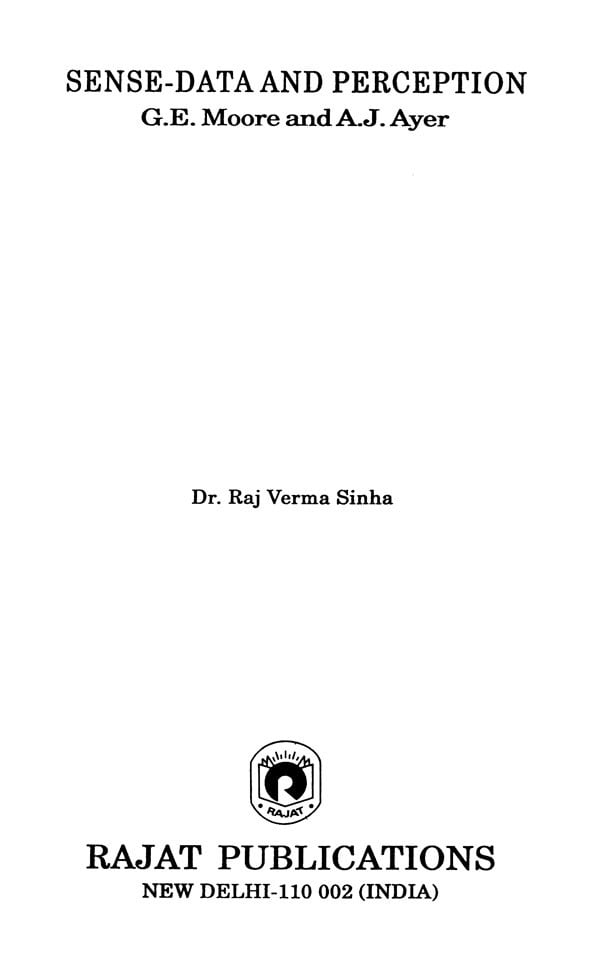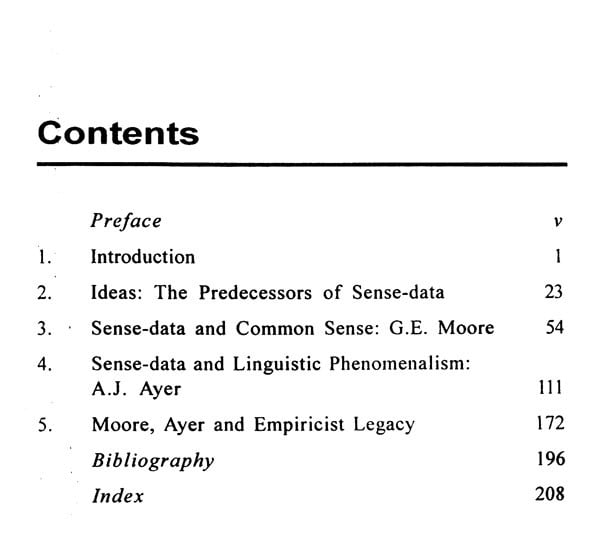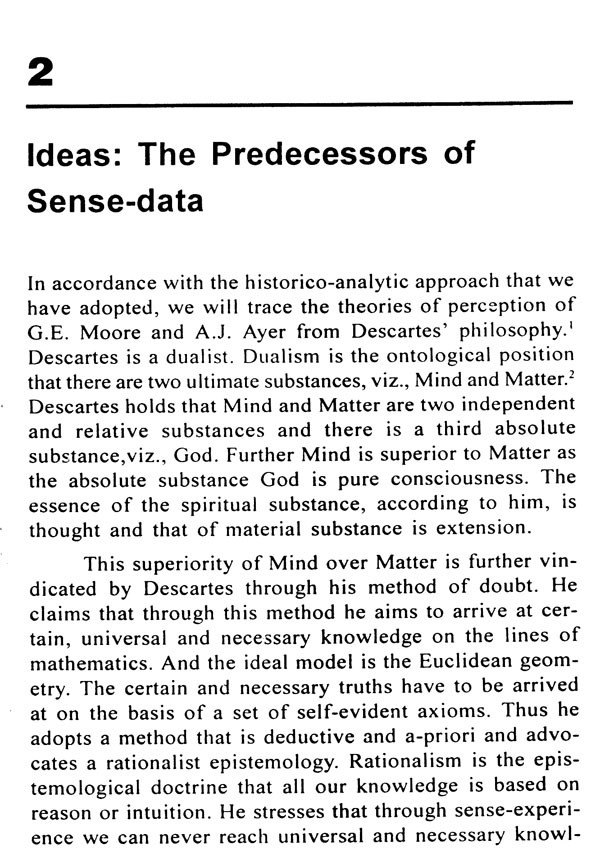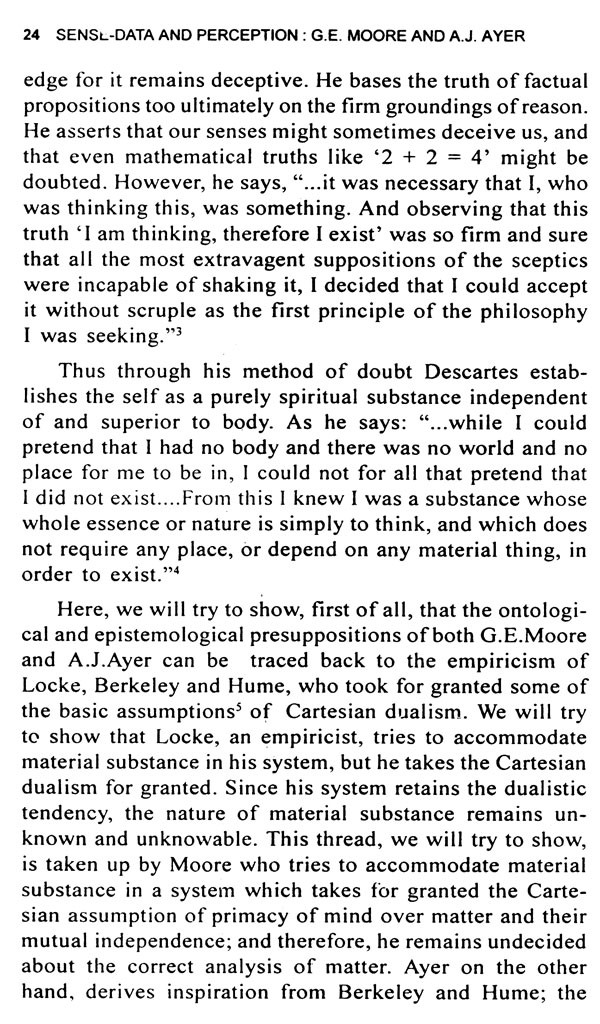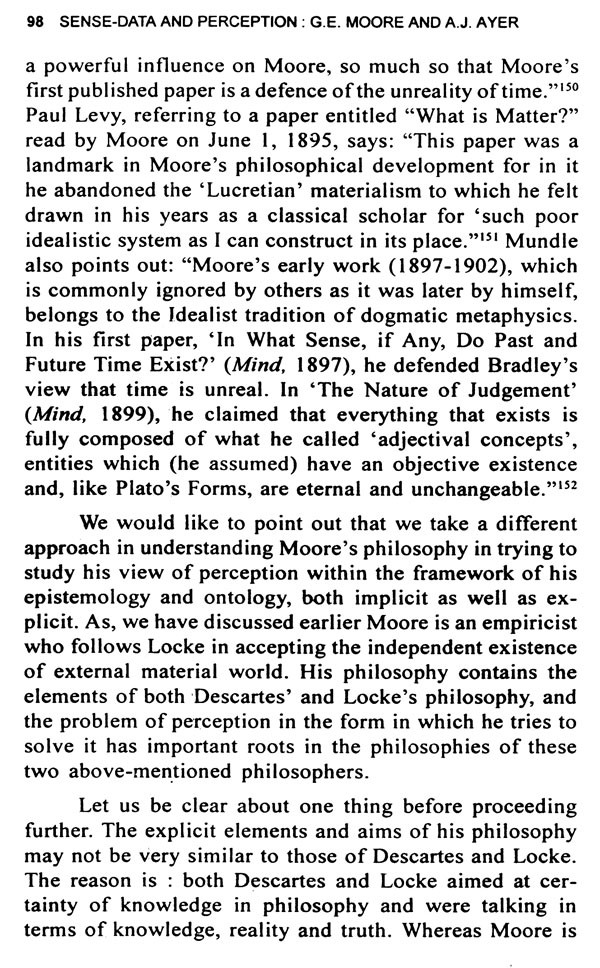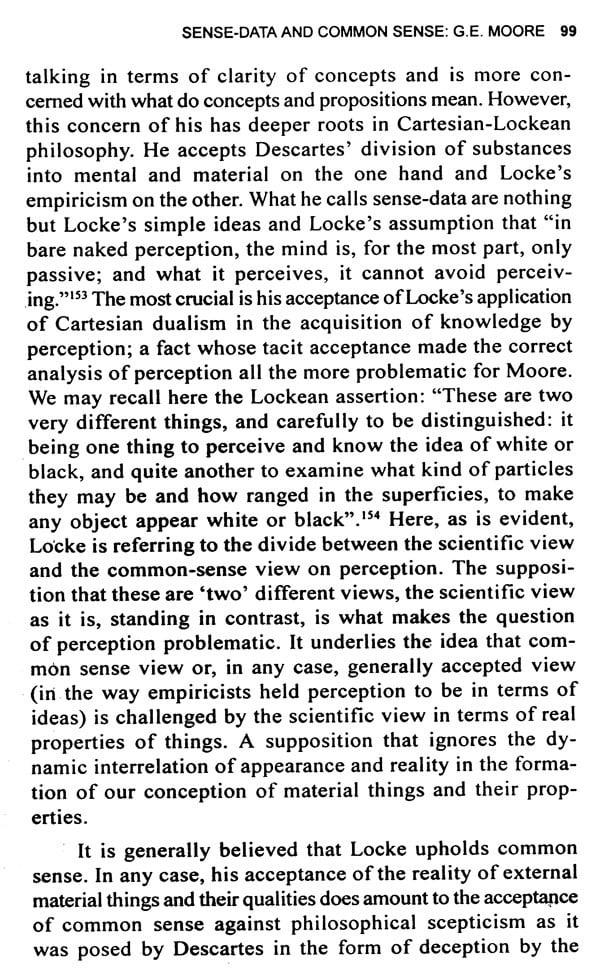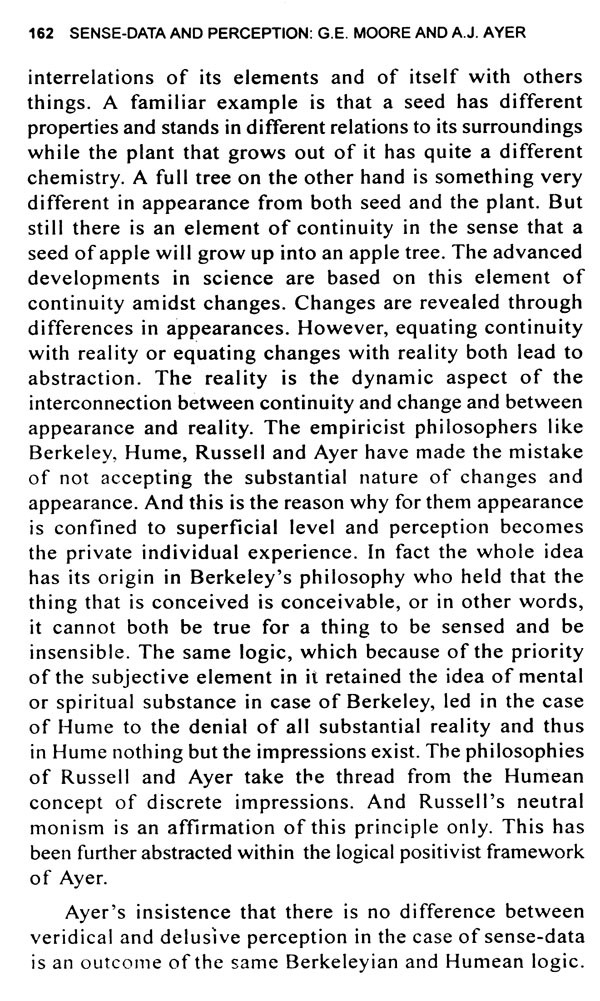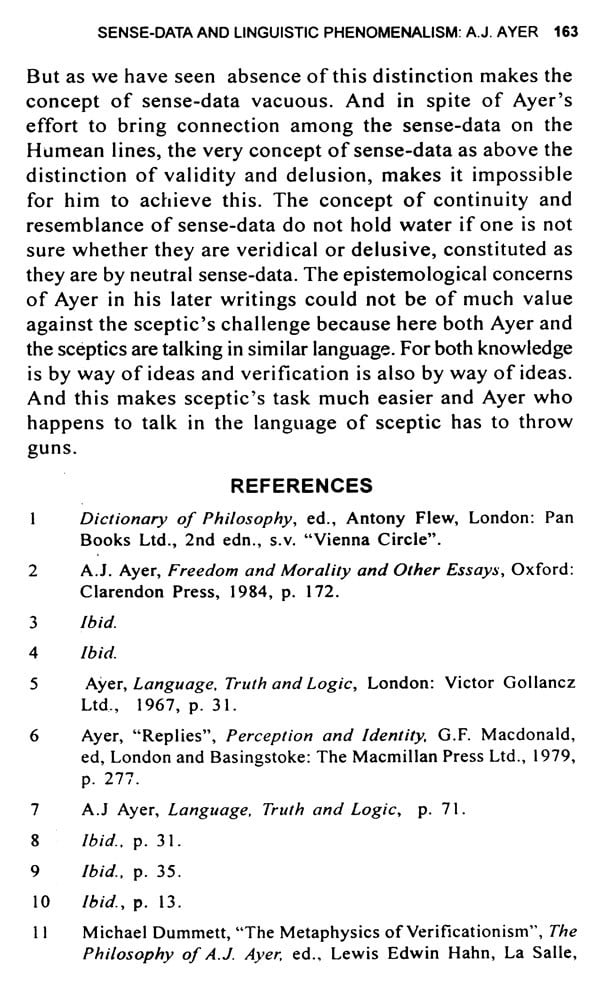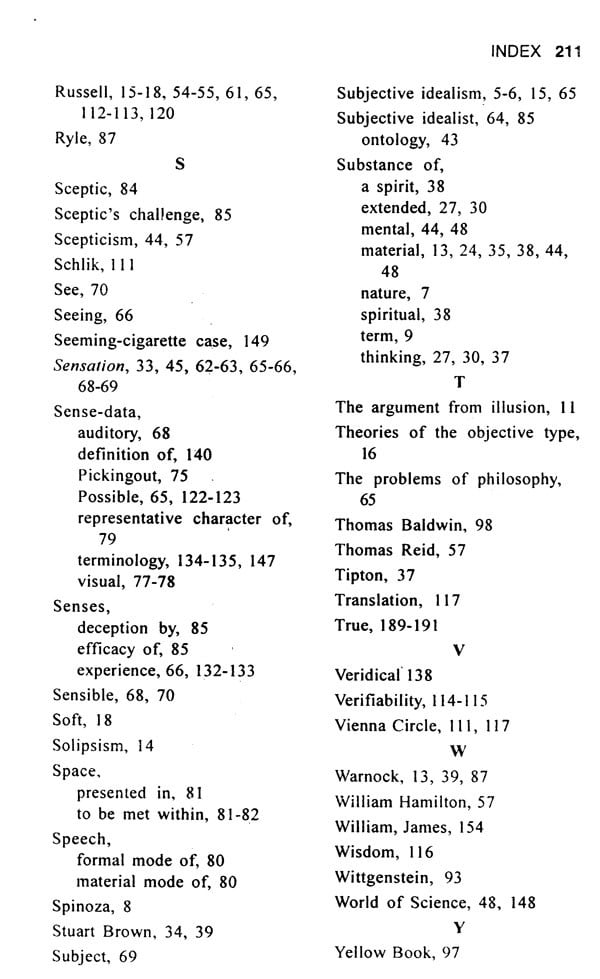
Sens-Data and Perception- G.E. Moore and A.J. Ayer
Book Specification
| Item Code: | UBA135 |
| Author: | Raj Verma Sinha |
| Publisher: | Rajat Publications, Delhi |
| Language: | English |
| Edition: | 2002 |
| ISBN: | 8178800268 |
| Pages: | 216 |
| Cover: | HARDCOVER |
| Other Details | 9.00 X 6.00 inch |
| Weight | 360 gm |
Book Description
One crucial claim of the book is that sense-data are the nothing but an analytical remake of empiricist ideas. It gives a lucid account of the relevant arguments and tries to see the problem in a new perspective.
She has also been a General Fellow of Indian Council of Philosophical Research, New Delhi.
At present, she is teaching at Janaki Devi Memorial College, University of Delhi.
The two philosophers chosen for the purpose belong to two main trends of the time. While G.E. Moore is associated with Common-Sense approach. A.J. Ayer belongs to Logical. Positivist school. They share quite a few things. Both are empiricist philosophers and accept the occurrence of sense- data. The theory of perception has remained central to their philosophies. And interestingly, both these philosophers have some points to make against metaphysical assertions. Though in different ways.
It is almost religiously accepted that Moore is a defender of common sense. I have made an attempt to re-examine this supposition and to analyse his view on perception in this light. Ayer, one of the ablest advocates of Logical Positivism, uses sense-data in two senses. First, as linguistic tools and, second, as part of individual's sense-experience. I have tried to show. how this creates inconsistency in his philosophy.
The philosophy of sense-data dominated the first half of the twentieth century with such able champions as Bertrand Russell, C.D. Broad and H.H. Price. However, a study of A.J. Ayer and G.E. Moore is especially interesting because of the unique treatment of the subject in their philosophies. While Ayer develops the philosophy of sense- data within a linguistic framework, Moore tries to find a justification for sense-data within the precincts of common sense. The sense-data philosophers traverse the regions bypassed by the Cartesian search for certainty. They try to locate certainty at the outskirts of Cartesian Grand Narrative- the region of doubt, deception and uncertainty-the domain of the senses.
In the chapter entitled "Ideas: The Predecessors of sense-data," we will examine the notion of idea in Descartes, Locke, Berkeley and Hume and state their views on perception."
**Contents and Sample Pages**
